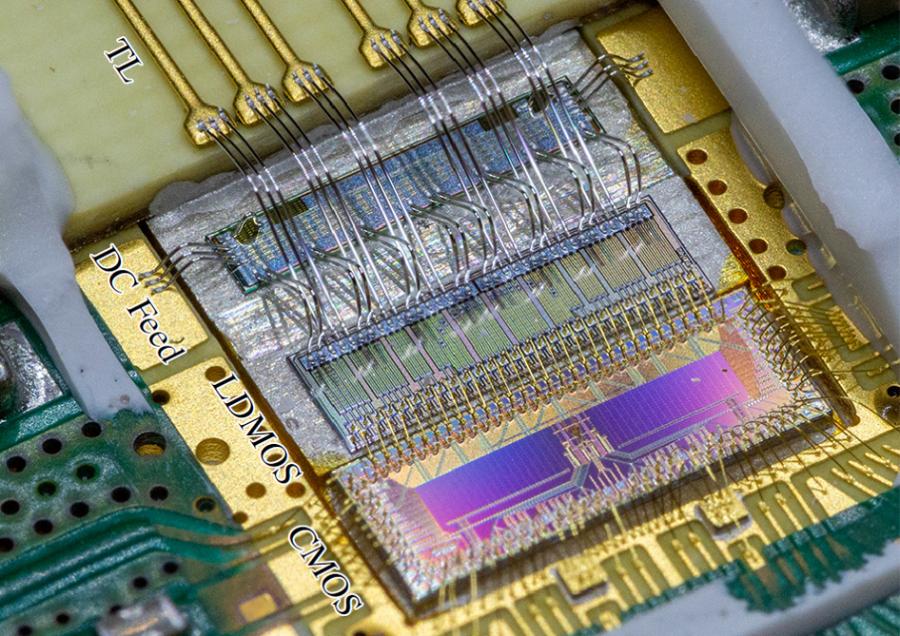High Power RF-DAC (DIPLOMAT)
Background: Wireless data traffic is growing exponentially. As a result, the current (4G) wireless networks are expected to become totally constipated by 2020. To avoid this “data breakdown,” new wireless technologies are needed that can provide a 1000x increase in data capacity while being ecologically and economically viable. To address this need, the so-called “fifth generation” (5G) wireless networks are currently under the definition. Massive multi-input/multi-output (mMIMO) transmitter-receiver (transceiver) configurations along with the use of smaller wireless cells are seen as the most promising directions to reach these goals. mMIMO utilizes hundreds of small transceivers, each connected to its own antenna. Such a configuration facilitates the use of (multiple) steerable “beams” enabling the spatial division of mobile users, a technique that can dramatically enhance data throughput at (potentially) much lower energy costs. Unfortunately, current state-of-the-art MIMO demonstrators are exclusively based on analog-intensive implementations. Consequently, they suffer from low-level of integration, poor reconfigurability, high costs, large form-factors, and above all, are extremely power-hungry.
The DIPLOMAT project: aims to provide novel digital-intensive data-traffic scalable mMIMO transceiver technology solutions that support carrier aggregation. This new approach can enable a 1000x data traffic increase, while being (10x) more energy efficient and cost effective than current mMIMO system prototypes. The proposed research significantly benefits from the ever-ongoing technology scaling in CMOS (Moore’s law) and offers better functionality at a very high integration levels, as such addressing the needs of upcoming (small-cell) mMIMO transceivers. This is an NWO, OTP project in cooperation with Ampleon and Nokia.

Project data
| Researchers: | Rob Bootsman, Dieuwert Mul, Mohammad Ali Montazerolghaem, Morteza Alavi, Masoud Babaie, Leo de Vreede |
|---|---|
| Starting date: | October 2018 |
| Closing date: | October 2022 |
| Contact: | Leo de Vreede |